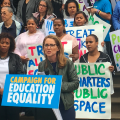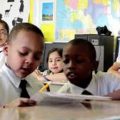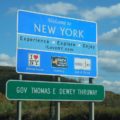By Dennis Conforto
Our entire world changed virtually overnight. The pandemic caused by the coronavirus changed every nation, every city, every community, every family, and every single individual on planet earth. In a flash, everything that once felt secure was suddenly at risk: jobs, banks, stocks, retirement, and governments. The dynamics of our human interconnectivity from a global and individual perspective suddenly was altered. As it unfolded before our eyes, everyone knew the world somehow and, in some way, had been forever changed. New global rules with new words suddenly became the norm like “social distancing”, “flatting the curve”, “novel coronavirus”, “shelter in place”, “pandemic”, “epidemic” and “super spreaders.” Those words changed everything.
Nations separated from nations, states from states, cities from cities and family from families. The only things that kept us together was various forms of technology like the internet, cell phones, facetime, zoom calls, and TV. Interestingly enough, the true irony is those very same tools prior to the pandemic were creating their own form of social distancing as millions of us were more focused on our cell phones than our family and friends around us. The tools that were driving us apart are now being used in small measure to bring us together.
The acts of being human have now been greatly curtailed. Gestures of touch found within a hand shake, a hug, or a kiss are now seen as things to avoid and fear at some level. Acts of love from members of our own family are now changed, as families drive by in cars to wave at grandparents who they can’t embrace because of the real and present danger that these loving expressions can take their lives. We are now asked to be separated by a distance of 6 feet. Which I find to be another one of the many ironies in life because when we bury our dead, they are also separated from us by those same 6 feet. We are separated by the same six feet from both the living and the dead.
When I was young, I was taught to fear an atomic war, and I did fear it, for both me and everyone in the world I knew. I also knew even as a small boy that if it happened the world would forever change, it would have to change the rules of everything. The threat of Atomic bomb and nuclear war also had words that went with it like “mutual destruction” and “mutual deterrence.” Yet at the same time I had great faith that it wouldn’t happen because those who pulled the trigger also would assure their own destruction, along with all those they loved. I just didn’t see that happening, I knew it could happen I just didn’t believe in the end it would.
However, the release of this virus is different because it happened either knowingly or unknowingly to the world. How it happened over time we will learn, but for now the focus is how do we slow and curtail the full impact of its destructive nature. If left unchecked, this virus under its own power to survive, could perhaps mutate into something far worse that what it is today.
It is not like that these plagues have not been here before, because they have. Some over the ages like the black plague wiped out major populations within Europe in short order. Because they didn’t understand the cause, because they didn’t have the science to fight the cause and because they didn’t have the speed to communicate, they couldn’t save their own. The black plague killed as much as 50% of all of Europe from 1346-1353. For seven years, it ran its course through the population of major cities and then worked its way to the population who provided the food source from rural Europe. It killed the rich and famous to the poor an obscure. It was relentless and to this day is considered to be the most destructive force to impact the human race in recorded history.
Of course, we have several advantages today. First, we have more science; second, we have more technology; and third, we have rapid communications. We understand what we are facing, we have a path to solve it, we can warn people worldwide and we can track it in great detail as we test and treat those who are impacted and save those that can be saved. These are features that the people of the black plague simply did not have.
We also have some things that work against us as well. First, the massive size of the human population approaching 8 billion. It is impossible to direct them all to social distancing and safe habits of cleaning their environments. Second, is the speed at which we can travel in country, and internationally. As a result, we create hot spots globally that can spring back up over and over again if we are not vigilant. And third, our global trade which moves not only people, products, services and food to support 8 billion people around the globe.
It is on these three tipping points of population size, travel and trade where all change will start to happen and happened quickly. Those changes will ripple into how all businesses operate and in turn deeply transform every aspects of our lives. It is unknown to any of us just how far it will go or can go. We are warned by the scientific community that COVID is a mild pandemic compared to what might be and could be. And yet this mild pandemic has brought the world economy to the brink.
Our interconnectivity strengthened us, and it weakened us. It grew the standard of living around the world and yet placed the world at greater possible risk. It made the world bigger and smaller, it made us stronger and weaker. It brought us together and torn us apart. And now we must be smart.
COVID took away our human nature in ways that limited our abilities to feel, touch, see and interact in ways that we were built to be. In the bad is always found the good, and there is much good that can come from the changes that societies will now make. While we think globally, we will learn to be better at being local, and while being better locally is great, we need to be better at our personal relationships with those we are the most responsible for which is our family and those we work with.
We will learn to use technology to save us and learn to drop it when it creates social distancing because we interact more with it than we do with those who are naturally part of the most inner circle of our lives. Travel, trade and the flow of products, services, food and people will all change. In the process, we will learn that as complex as the world is, our lives have to be simple, and focused on family, friends and those we work with. How we connect with them is what will be the biggest change of all.

















Follow Us